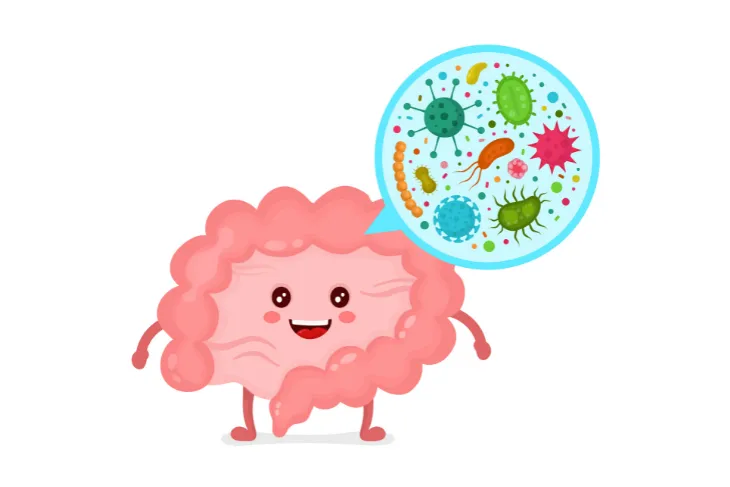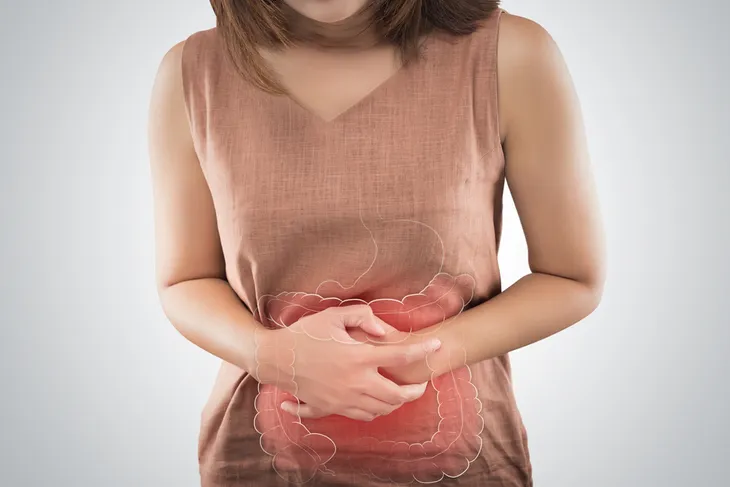Inflammatory bowel disease (IBD) is an umbrella term for any condition that causes inflammation in your digestive tract, and it includes ulcerative colitis and Crohn’s disease, among others.
While both are quite common in the U.S. – and apparently on the rise in the U.S. – there are certain causes and risk factors to consider that might be able to help you avoid them. Let’s look at 12 of them…
Location
The Mayo Clinic says where you live is a contributor to developing IBD, which may seem surprising to some. More specifically, living in an “industrialized country” such as the U.S. puts you at higher risk, it adds.
However, the reason isn’t due to pollution from factories or being crammed into tight spaces (although those probably don’t help). The source says those living in developed nations are exposed to a diet that’s higher in fat, as well as refined foods. “People living in northern climates also seem to be at greater risk,” it adds.
Diet
It’s probably no shocker that what you put into your body will travel through your intestines, and may play a role in the risk of intestinal troubles. However, there doesn’t seem to be any solid evidence of this.
Health.com offers that there’s “conflicting research” as to whether what you eat is associated with IBD risk. It points to a study out of Japan that shows an increased risk of Crohn’s in women who consume a lot of protein (particularly animal protein), while other studies suggest a link to a high-fat and high-sugar diet.
Ethnicity
Your ethnic background may also play a role in your risk levels when it comes to developing IBD, explains Healthline.com. The source says all ethnicities are at risk for having an IBD.
However, “certain ethnic groups” – namely Caucasians (whites) and Ashkenazi Jews are at higher risk, although the source doesn’t explain why. InflammatoryBowelDisease.net adds an interesting point – “Interestingly, race and ethnicity have been linked to differences in what part of the digestive tract is affected by Crohn’s disease.”
Gut Bacteria
It’s important to maintain a good balance of “good” gut bacteria, otherwise known as probiotics, as letting fungi and bad bacteria run amuck can cause health woes.
Crohn’s & Colitis UK says researchers are looking at the role of gut bacteria in the development of IBD – Crohn’s disease in particular. “There is emerging evidence that bacteria in the gut may secrete proteins which interact with the cell layer lining the colon. These proteins may cause inflammation and lead to the development of Crohn’s,” it explains.
Age
VeryWellHealth.com explains that age-related IBD is most common. It says IBDs are actually most commonly diagnosed between the ages of 15 and 25, and of the estimated 1.6-million people in the U.S. living with an IBD, about 10-percent are children.
However, just because you’ve made it past age 25 without bowel inflammation, it doesn’t mean you’re out of the woods yet. The source explains that the risk of diagnosis spikes again at age 50.
Genetics
Cleveland Clinic explains that while the exact cause of IBD is not known, evidence suggests that “genetic predisposition” plays a major role in risk factors.
It backs the claim up with numbers, noting that 10 to 20-percent of people with an IBD also have a family history of the diseases, with the highest risk when your parents or siblings have experienced an IBD. In fact, based on current knowledge, “a positive family history is the single greatest risk factor for IBD,” it adds.
Oral Contraceptives
VeryWellHealth.com notes there may be a link between using oral contraception and developing an IBD. It says there have been some previous studies that link oral contraceptives with Crohn’s disease risk in particular. “The jury is still out on whether or not the pill can be a trigger for IBD or for an IBD flare-up,” it adds.
It admits there is some conflicting evidence between the pill and IBDs, with some research showing a higher risk, and others showing no increased risk. However, it says a meta-analysis of 14-studies concludes taking oral contraceptives may increase IBD risk, especially Crohn’s.
Smoking
Not too surprisingly, smoking has been linked with a greater risk of developing an IBD, according to Healthline.com. In fact, the source says it’s “one of the main risk factors for developing Crohn’s disease.”
On top of that, smoking can also make the symptoms of Crohn’s worse, and can increase the chance of complications from the disease, it adds. On the flipside, ulcerative colitis seems to target non-smokers and former smokers, it notes.
Certain Medications
The Mayo Clinic says that using over-the-counter anti-inflammatory medication (without steroids) may end up causing inflammation of your digestive tract.
In particular, the source names ibuprofen (including Advil, Motrin IB, and others) as well as naproxen sodium (Aleve) as possible risk links. Meanwhile, diclofenac sodium (Voltaren) may also be connected to a higher risk, according to the source.
Immune Response
The Crohn’s & Colitis Foundation explains that ulcerative colitis is caused by an abnormal response by your immune system, causing your immune system to mistake food and bacteria in the gut as invaders. “When this happens, the body sends white blood cells into the lining of the intestines, where they produce chronic inflammation and ulcerations,” it adds.
The autoimmune response is similar in patients with Crohn’s disease, says the source – the “harmless bacteria” that aids digestion are targeted by an immune response, it adds. The 2-diseases affect different areas of the digestive tract – Crohn’s often is found in the end of the small intestine (although it can appear anywhere along the tract), while colitis is found only in the large intestine.
Appendectomy
Having your appendix removed (due to inflammation) may spike the future risk level of developing Crohn’s disease, according to the Canadian Society of Intestinal Research. Interestingly, it points to a 2003 study that says appendix removal can actually decrease the risk for colitis but notes a 2001 study from the same researchers says it can raise the risk for Crohn’s.
Both study results were drawn from 212,218-patients included in a Swedish inpatient registry (and a matched control group) that had an appendectomy performed earlier than age 50, notes the source. “It’s unclear, however, if appendicitis increases the risk of Crohn’s disease, or if people at risk for Crohn’s disease are more likely to develop appendicitis,” it adds.
Parasites
The same source says it may not be the presence of worms in your digestive tract causing you problems, but rather the absence of them. It notes the prevalence of helminths – which it described as “harmless minute parasitic worms” – have been declining sharply in the human population since the middle of last century.
“Historically, humans co-existed with these creatures in what researchers are now coming to believe to be an essential immune regulatory relationship,” it explains. It says western civilization may have become too “clean,” noting less developed parts of the world have a lower incidence rate of IBD despite children routinely being exposed to worms.















